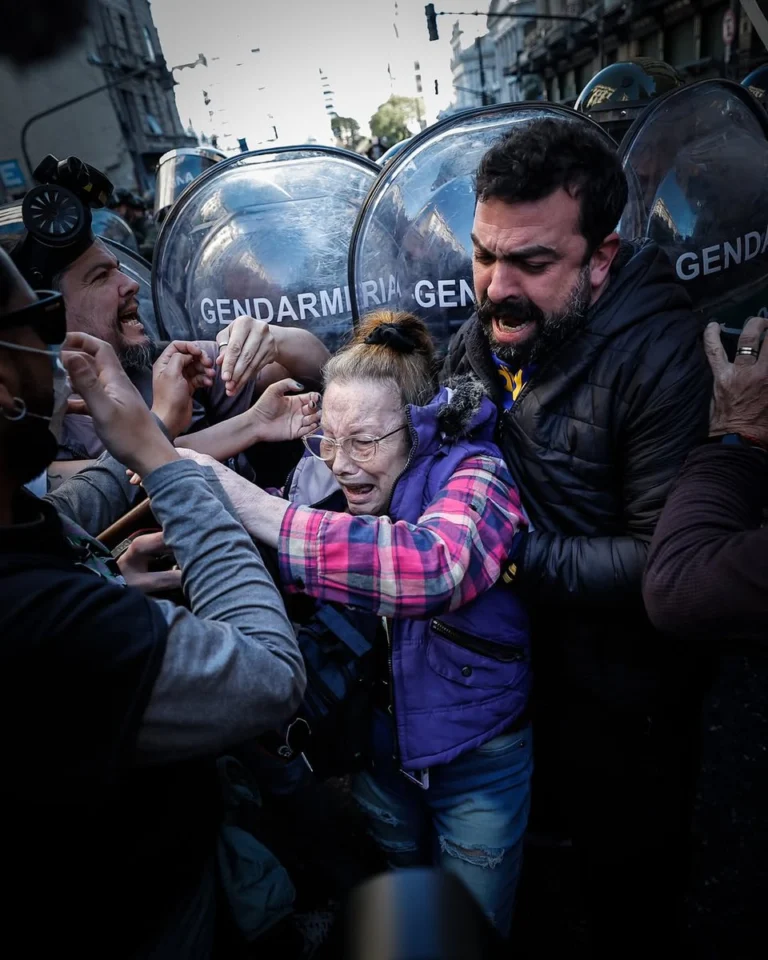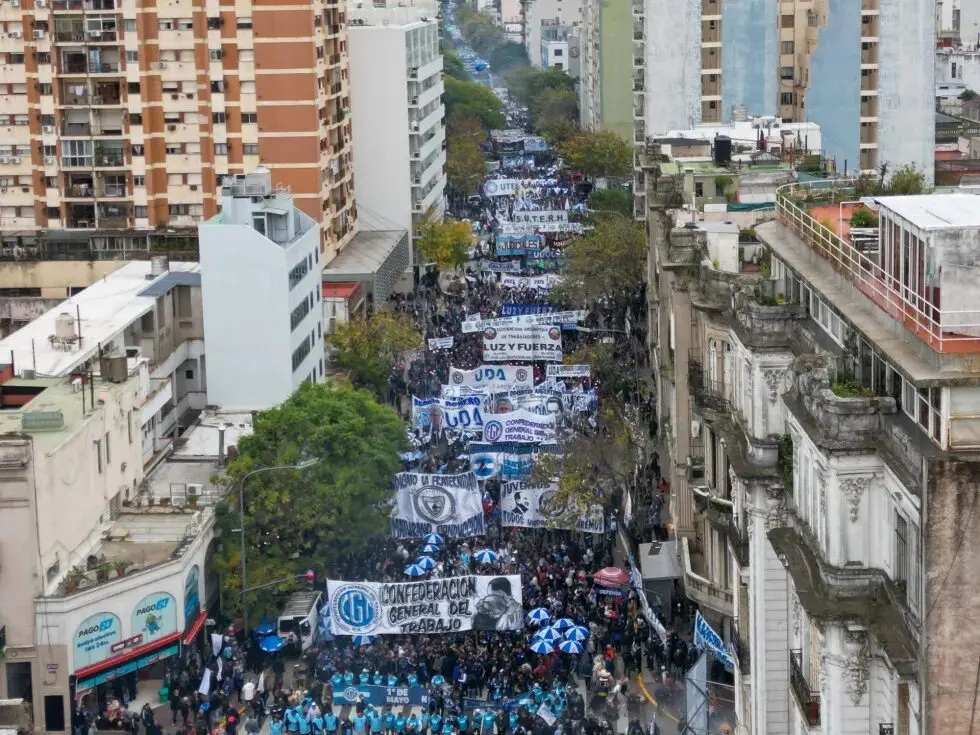Protest Crackdowns Intensify in Argentina as Milei Implements Austerity
A new human rights report shows a marked increase in police violence against protesters in Argentina, with more people injured and detained in six months than in all of 2024.

Protesters face tear gas and arrests in Buenos Aires during growing anti-austerity mobilizations under President Javier Milei. Photo: @CPMemoria
July 24, 2025 Hour: 3:23 am
More protesters were injured or detained in Argentina during the first half of 2025 than in all of 2024, according to a new report by the Provincial Commission for Memory (CPM), which links the spike in repression to President Javier Milei’s austerity policies.
RELATED:
Venezuela Mobilizes 380,000 Troops to Secure July 27 Municipal Elections
In the first six months of 2025, the CPM documented 1,251 cases of injuries or detentions during demonstrations in Buenos Aires—surpassing the total of 1,216 recorded in all of 2024. The organization attributes this rise to a deliberate state strategy to suppress dissent amid the government’s sweeping economic adjustment program.
The report was released at the headquarters of Argentina’s State Workers’ Association (ATE) on July 23, with the presence of prominent human rights and labor leaders. It concludes that the security forces—both federal and from Buenos Aires City—have adopted “systematic practices” aimed at limiting the right to protest, particularly among unions, social movements, political groups, and pensioners.
One of the most violent episodes occurred on March 12, when a mass mobilization near the National Congress turned into what the CPM called “the most brutal repression” under Milei’s government. Originally led by pensioners protesting benefit cuts, the demonstration quickly grew to include workers, political parties, grassroots organizations, and football fans.
That day, 672 people were injured and more than 100 arrested. Among the most serious cases was that of photojournalist Pablo Grillo, who was struck in the head by a tear gas grenade launched by a Gendarmerie officer. Grillo suffered a traumatic brain injury, spent 83 days in intensive care, and remains in neurological rehabilitation. The CPM identified Héctor Jesús Guerrero as the alleged perpetrator based on audiovisual footage, and filed a formal complaint with Federal Court No. 1, presided by Judge María Romilda Servini de Cubría.
The CPM also documented a significant rise in arbitrary arrests, with 130 detentions in just six months, compared to 93 in all of 2024. The report describes an increasingly militarized public space, where the number of security personnel deployed at demonstrations has doubled or tripled in some cases.
State repression now occurs in half of all protests, up from three in ten the previous year. While the increase in total injuries may seem marginal, the severity of violence and lack of accountability mark a new phase. The Ministry of Security closed the internal investigation into the Grillo case without sanctioning those involved—what the CPM says indicates political decisions made “at the highest levels.”
The report was compiled with assistance from on-site medical and legal support teams, including the Emergency and First Aid Corps (CEPA) and the health team of the Left Unity Front. In cases where direct monitoring was not possible, data was sourced from partner organizations and verified media outlets.
Speaking at the report launch, ATE national secretary Rodolfo Aguiar called for institutional resistance to state repression:
“This report must strengthen our struggle. A government that deploys security forces to silence those who oppose its adjustment and looting policies must be answered with institutional and democratic tools. Against repression, we respond with strikes and mobilization.”
Such levels of violence during peaceful demonstrations mirror trends seen in other Global South contexts, where austerity and authoritarianism often go hand in hand.
As Argentina’s economic reforms deepen, so does the state’s reliance on force—raising urgent questions about the future of democratic dissent in the country.
Author: MK
Source: El Destape


